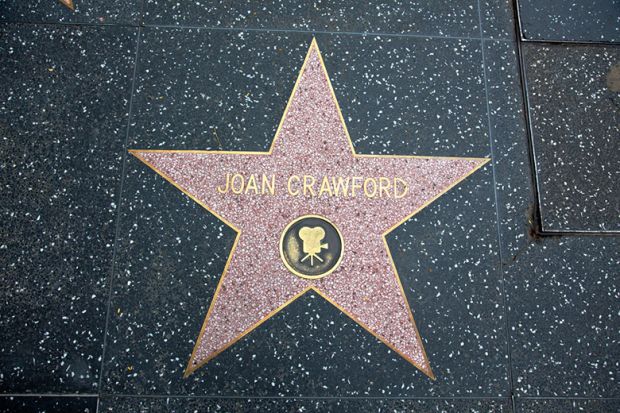A new book from David Bordwell is always a welcome event in the field of film studies, particularly for the cinephilic academic who appreciates his wide-ranging corpus and the close attention with which he analyses individual moments. As a cognitive analytic film theorist and co-author (with wife Kristin Thompson) of every film student’s introduction to analysing form, Film Art, Bordwell is consistently concerned with how films create meaning through form, style and staging. His essays and books examine films in several historical, cultural and industrial contexts, including Japanese and Hong Kong cinema, but he has also written extensively about Hollywood cinema, including the style of the classical Hollywood studio system and the ways in which stories are told in modern Hollywood movies.
Bordwell’s latest work makes a grand claim in its title – that 1940s film-makers changed movie storytelling. With a stark image of Joan Crawford’s aghast eyes on the cover (Crawford is a popular cover star for film studies tomes, covering as she does the entire reach of the studio system, from jazz baby to psycho biddy), Bordwell presents 1940s Hollywood as a vibrant storytelling factory, in which ideas were borrowed, tweaked, recycled and reversed, and argues that this turbulence created the groundwork of cinematic art.
While acknowledging that the film-makers, films and genres of this decade have been the subject of a prolific literature, Bordwell asserts that the landscape of developing storytelling strategies has not been systematically mapped. This is possibly true. Reinventing Hollywood is not an examination of the cultural zeitgeist or public attitudes of the time: that sort of conjecture is not for Bordwell. Rather, he sets out to expose and explore the narrative twists and turns that storytellers and film-makers grappled with as they made educated guesses and bold stabs at grabbing the attention of audiences. Bordwell demonstrates how 1940s films “epitomise the urge for constant, expansive novelty”. Musical numbers, sex scenes, psychological complexity: all these devices led to a “flowering of forms”.
Supported by online resources including film clips and commentaries, the project is a marshalling of examples from the Hollywood era that Bordwell holds most dear. Noting the influence of British films at the beginning of the decade, as well as newcomer Orson Welles and a new generation of writers, producers and stars-turned-directors (such as Ida Lupino), Bordwell describes an industry of incredible competitiveness and cooperation. It is a hugely engaging account of the fertility of this period and a convincing collection of invigorating storytelling innovations, from polyphonic flashbacks and hallucinations to parallelisms, ellipses and plural protagonists, with Bordwell unable to resist spotting some star turns from the likes of Ginger Rogers and James Cagney. The identification of shifts such as “hero to heel” and the subjective inner monologues of damaged characters, as well as the meticulous description of the storytelling devices that film-makers were experimenting with, make a strong case for the innovation of 1940s film-making, a fresh contribution to scholarship on Hollywood cinema and an aficionado’s joy.
Lucy Bolton is senior lecturer in film studies at Queen Mary University of London.
Reinventing Hollywood: How 1940s Filmmakers Changed Movie Storytelling
By David Bordwell
University of Chicago Press, 592pp, £30.00
ISBN 9780226487755
Published 6 October 2017
POSTSCRIPT:
Print headline: The silver screen dream machine
Register to continue
Why register?
- Registration is free and only takes a moment
- Once registered, you can read 3 articles a month
- Sign up for our newsletter
Subscribe
Or subscribe for unlimited access to:
- Unlimited access to news, views, insights & reviews
- Digital editions
- Digital access to THE’s university and college rankings analysis
Already registered or a current subscriber? Login






